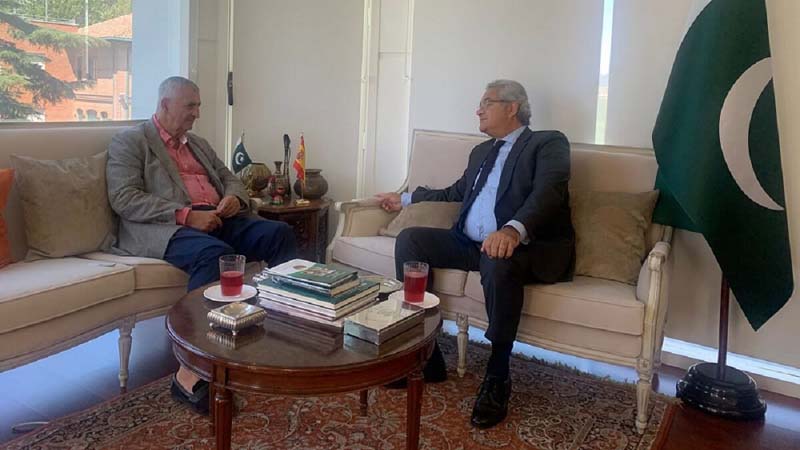Indian move could lead to new confrontation in South Asia: envoy
Pakistan’s Ambassador to Spain Shujjat Ali Rathore believes that the step taken by India on Aug 5, 2019, and its repeated violations of human rights and the Fourth Geneva Convention (the one relating to the Protection of Civilian Persons in Time of War) constitute a serious provocation that could lead to a new confrontation between the two countries.
On August 5, 2019, the current Indian government abolished the abrogation of Article 370 of its Constitution that reflected the agreement signed in 1949 between the then Indian Prime Minister Jawarharlal Nehru and the Prime Minister of Jammu and Kashmir Sheikh Mohammad Abdullah. Pakistan neither admitted nor recognized Narendra Modi’s new Reorganization Act.
According to the ambassador, all three powers involved have nuclear weapons. “It is clear that there has been an asymmetry in terms of the conventional weapons available to each side, an imbalance so serious that it could tempt those who feel at a disadvantage to use nuclear weapons”.
He said the government in Islamabad was watching India’s latest moves, especially its rearmament, and more specifically the voluminous contracts concluded by Narendra Modi with French President Emmanuel Macron during his recent visit to Paris, with attention and suspicion.
Pakistan believes that the EU may be leaning more towards the business of selling its weapons of all kinds than towards reaffirming its most emblematic values, especially those concerning respect for human rights.
The disputed region is one of Asia’s hotspots, susceptible to catching fire again involving not only two populous countries like India and Pakistan, but also China. The nuclear powers have direct interests in Kashmir. The reason for this dates back to 1947 when the UK agreed to the independence and partition of the jewel of its empire, commissioning the lawyer Cyril Radcliffe, who had never set foot in the country, to draw the demarcation lines, which he did after a hurried stay of barely five weeks.
In addition to Mohandas Gandhi and Jawarharharlal Nehru, the Indian leaders who advocated a united and centralised country, Mohamed Ali Jinnah, president of the Muslim League, pressed for a separate nation for Indians who were followers of Islam.
Radcliffe drew the boundaries between Pakistan and India, including East Pakistan, which in 1971 became independent as Bangladesh. In this partition plan, Kashmir was given the power to freely choose to be part of one or the other of the new countries.
The local ruler, Maharaja Hari Singh, despite an overwhelming majority of Muslim inhabitants, opted for India, sparking the first Indo-Pakistani war, which lasted for two years. The two countries would clash again over Kashmir in 1965 and 1999, as well as in 1971, when India supported Bangladeshi independence fighters with arms, supplies and intelligence, in which they triumphed.
Meanwhile, the Jammu and Kashmir region consolidated Indian control over half of its territory, while Pakistan consolidated control over the north-western third, while, in agreement with Islamabad and Beijing, China took control of the remaining territories in the north and north-east of the region.


Comments are closed.